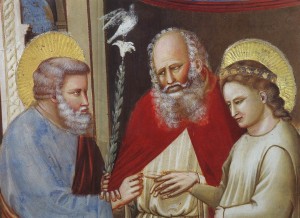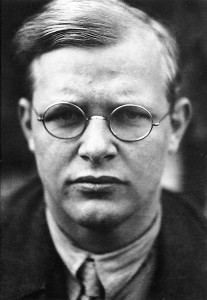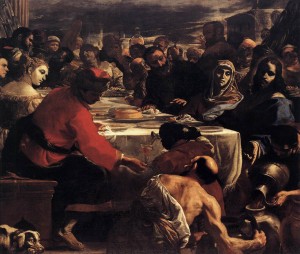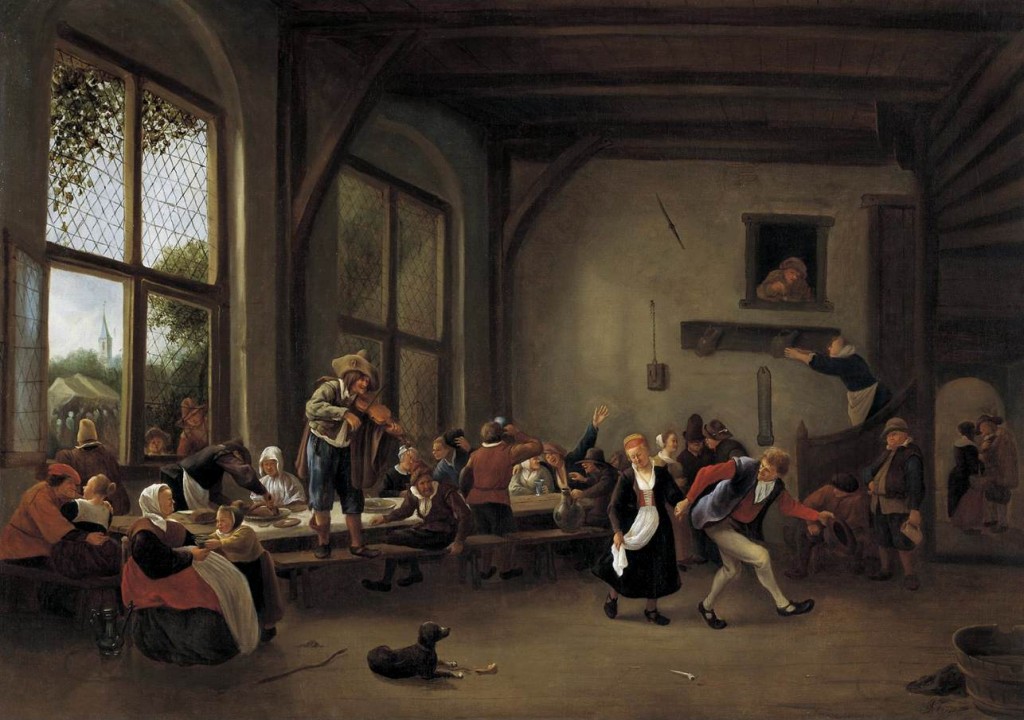Tony Campolo did not raise quite as many eyebrows as he might have expected when he released a statement which endorsed gay marriage. His position on this issue has always been somewhat ambiguous. Some evangelical leaders see Campolo’s announcement as one more sign of the end of evangelical Christianity. Perhaps, perhaps not. As much as I appreciate them, I expect that God can preserve his Gospel without Christianity Today or Mission Praise. There is no need for a moral panic.
Now, Campolo’s colleague, Christian Piatt, assures us that this press release was Tony’s considered response:
Tony knows scripture, perhaps better than anyone else I know. He’s a theologian-bar-none, and he preaches the doors off of nearly anyone alive today. He’s written scads of books, thought and prayed for hours on all matters biblical, theological, spiritual and related to social justice. No public statements of his comes off the cuff and without prayerful discernment.
 So perhaps eyebrows should be raised at the astonishing lack of depth in Campolo’s statement.He begins by asking an excellent question: “what is the purpose of marriage in the first place?” But then he makes three terrible mistakes. First, he assumes that this is the only question worth asking, which implies that the end justifies the means. However, God has many purposes and we must respect them all. We cannot pursue the purpose of marriage, for example, by trampling on the rights of children or God’s purposes for the wider family.
So perhaps eyebrows should be raised at the astonishing lack of depth in Campolo’s statement.He begins by asking an excellent question: “what is the purpose of marriage in the first place?” But then he makes three terrible mistakes. First, he assumes that this is the only question worth asking, which implies that the end justifies the means. However, God has many purposes and we must respect them all. We cannot pursue the purpose of marriage, for example, by trampling on the rights of children or God’s purposes for the wider family.
Second, he assumes that there can only be one purpose in marriage, or one primary purpose which outweighs all the others. Once Campolo has dismissed the notion that procreation is the only purpose of marriage he casually assumes that procreation has nothing to do with marriage! But there would be little point in sanctifying monogamous sexual unions if sexual unions were not strongly correlated with parenthood. Procreation is one of the reasons God instituted marriage; it is an essential part of its meaning and purpose. Third, Campolo’s answer to “what is the purpose of marriage?” reduces to little more than pietistic platitudes.
We believe that God intends married partners to help actualize in each other the “fruits of the spirit,” which are love, joy, peace, patience, kindness, goodness, faithfulness, gentleness and self-control, often citing the Apostle Paul’s comparison of marriage to Christ’s sanctifying relationship with the Church.”
Of course, Christians should help their marriage partner’s develop the fruits of the spirit. But we should do that in all our friendships. And while it is true that Paul used marriage to illustrate Christ’s relationship with his Church, he nowhere says that the purpose of marriage is to illustrate Christ’s relationship with the Church. This sort of crude allegorisation might have embarrassed mediaeval theologians! Paul also compares Christ’s relationship with the Church to a head’s relationship with its body. Does that mean that the purpose of the human head is to illuminate Jesus’ authority?
Above all, Campolo fails to acknowledge the social and intellectual revolution which led to the redefinition of marriage in our culture. Right and left wing political movements have equally contributed to the deconstruction of the marriage covenant. The unconstrained free market cannot recognise religion or tradition, so contraception and reproductive technology are readily available to everyone on demand. The casual use of contraception, with easy access to abortion, has lead to a divorce between sexuality and procreation; procreation and sexual relationships are further torn asunder when reproductive technologies are available to paying customers.
 Technology allows us to enjoy sexuality without consequence and reproduction can be now be tailored to the desires of consumers (especially wealthy consumers). When faith and virtue are no longer treasured sex becomes thoroughly secularised. In this new intellectual climate, marriage can no longer valued as a conjugal union. It becomes merely one example of what theorists call “pure relationships”. A “pure relationship” is defined by the partners, and not by law, community or tradition. It is a love affair which has no objective value over and above the couple’s subjective experiences; such relationships exist solely to meet each partner’s needs and will dissolve when one partner is no longer satisfied.
Technology allows us to enjoy sexuality without consequence and reproduction can be now be tailored to the desires of consumers (especially wealthy consumers). When faith and virtue are no longer treasured sex becomes thoroughly secularised. In this new intellectual climate, marriage can no longer valued as a conjugal union. It becomes merely one example of what theorists call “pure relationships”. A “pure relationship” is defined by the partners, and not by law, community or tradition. It is a love affair which has no objective value over and above the couple’s subjective experiences; such relationships exist solely to meet each partner’s needs and will dissolve when one partner is no longer satisfied.
So marriage is now simply one more type of living arrangement, with no inherent dignity or purpose. Wedlock is just another option for the busy shopper. Co-habitation and serial monogamy, polyamorous or open relationships are just other choices on the menu. The only thing that matters is consumer satisfaction. The redefinition of marriage only makes sense in such an intellectual environment. In a fair market, goods and services should be equally available to all. The conjugal, covenantal understanding of marriage, which is older than Moses and was blessed by Christ, excludes same-sex couples. The market demanded a shift; so the state responded.
Campolo’s perception of marriage is a little more spiritual: he wants each partner to experience the fruits of the Spirit. It seems he can buy into the marriage revolution by blessing it with a prayer or two. But the value of a marriage remains subjective: marriage is valuable because of the benefits on offer to the partners. Of course, marriage can be a wonderful thing and I wouldn’t trade mine for the world; but ultimately my valuation of marriage is neither here nor there. When I married, I gave my word in front of my friends, my family, my neighbours, my country, my Church, and God; and God himself ratified that covenant. If I break that promise, what other promise can I keep? If God set the terms of the agreement, who am I to renegotiate it?
 I find it instructive to compare Campolo’s treatment of marriage with that in a famous sermon by Dietrich Bonhoeffer, written for the wedding of his close friend Eberhard Bethge. Bonhoeffer was unable to attend the wedding because he had been incarcerated by the Nazi’s for plotting against Hitler. Despite the personal loss, Bonhoeffer’s sermon is not sentimental. Though a wedding should be a happy occasion, he warns that a happy marriage is the responsibility of the husband and wife, and depends upon their choices.
I find it instructive to compare Campolo’s treatment of marriage with that in a famous sermon by Dietrich Bonhoeffer, written for the wedding of his close friend Eberhard Bethge. Bonhoeffer was unable to attend the wedding because he had been incarcerated by the Nazi’s for plotting against Hitler. Despite the personal loss, Bonhoeffer’s sermon is not sentimental. Though a wedding should be a happy occasion, he warns that a happy marriage is the responsibility of the husband and wife, and depends upon their choices.
Yet, in the end, marriage is not about our designs and plans, and it is certainly not about how good it makes us feel. Marriage is part of a larger design; it is a way of life that has a specific place in God’s plan:
He makes you at the same time instruments of His will and purpose both for yourselves and for others….He creates out of your love something quite new – the holy estate of matrimony. God is guiding your marriage. Marriage is more than your love for each other. It has a higher dignity and power, for it is God’s holy ordinance, through which He wills to perpetuate the human race till the end of time.
Love, while essential, is not enough, for in marriage romantic and sexual love gains a deeper significance:
In your love you see only your two selves in the world, but in marriage you are a link in the chain of the generations, which God causes to come and to pass away to His glory, and calls into His kingdom. In your love you see only the heaven of your own happiness, but in marriage you are placed at a post of responsibility towards the world and mankind. Your love is your own private possession, but marriage is more than something personal – it is a status, an office.
Mere human love is as frail as humans and liable to fail. Love leads the couple to the altar; but when they marry, they enter something which has more value than their feelings; they are given a charge, a mission, from God himself:
Just as it is the crown, and not merely the will to rule, that makes the king, so it is marriage, and not merely your love for each other, that joins you together in the sight of God and man. As you first gave the ring to one another and have now received it a second time from the hand of the pastor, so love comes from you, but marriage from above, from God.
It is this approval and commission from God that will keep the couple together:
As high as God is above man, so high are the sanctity the rights, and the promise of marriage above the sanctity, the rights, and the promise of love. It is not your love that sustains the marriage, but from now on, the marriage that sustains your love.
Statistics support Bonhoeffer’s point. While acknowledging that mere religious affiliation is not at all helpful, social scientist Bradley Wright notes that active religious commitment tends to keep marriages together. Of married couples who actively attend and identify with their congregations, catholic couples were 31% less likely to divorce, Protestant couples 35% less likely, and Jewish couples 97% less likely. This should not be surprising; if a couple believes that their marriage is a calling from God, and if they belong to community which supports that belief, they will be more motivated to endure.
 For Bonhoeffer marriage is both a blessing and a burden. The blessing is the hope of children; the burden is to be the link between the generations, for a union of a man and a woman is the seed of every family and generation. Of course, not every couple will be blessed with a child. While every marriage is a relationship which can accept the gift of children, a marriage that has been denied this gift is still a family in its own right. Every marriage reminds us that men and women were made for one another, that every child will have a mother and a father, and that every child’s mother and father should be examples of commitment, faithfulness and love.
For Bonhoeffer marriage is both a blessing and a burden. The blessing is the hope of children; the burden is to be the link between the generations, for a union of a man and a woman is the seed of every family and generation. Of course, not every couple will be blessed with a child. While every marriage is a relationship which can accept the gift of children, a marriage that has been denied this gift is still a family in its own right. Every marriage reminds us that men and women were made for one another, that every child will have a mother and a father, and that every child’s mother and father should be examples of commitment, faithfulness and love.
Some people might meet too late in life to have a child of their own; other couples will discover that they are infertile. Still, it makes sense for the older couple to wish that they had met earlier to have had children of their own, and for the infertile couple to wish that they were fertile. But a same-sex partnership cannot form a procreative union at any stage or under any circumstance; nor can the couple even coherently wish to form procreative union. When we read that Sarah and Elizabeth had children by their husbands, we might be amazed or incredulous; but these stories still make sense. But if Abraham and Zechariah had been “married” to men and not women, something more than a miracle would have been required.
Bonhoeffer discerns a deep purpose in marriage and a great responsibility. For Bonhoeffer, marriage is not something which humans can redefine, but only something which we can recognise and honour. Marriage is how God commands us to generate and nurture the next generation. It requires the spiritual and physical union of a man and woman. This is a difficult task, which requires God’s grace – but so does living without marriage. Discipleship was never meant to be easy. This message has been passed on from Christ, through his scriptures, to every generation of the Church. It cannot be abandoned without great loss and should not be dismissed in a press release.

